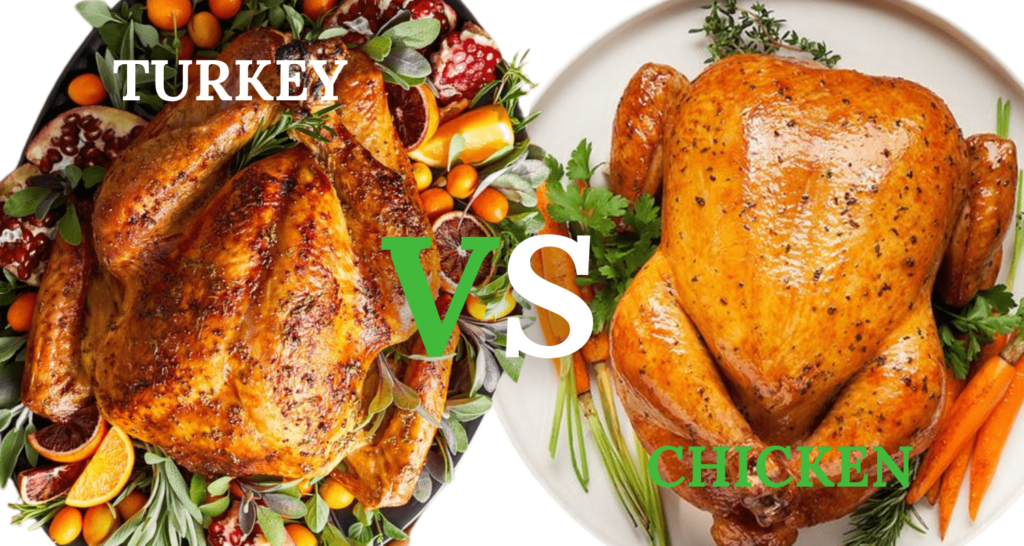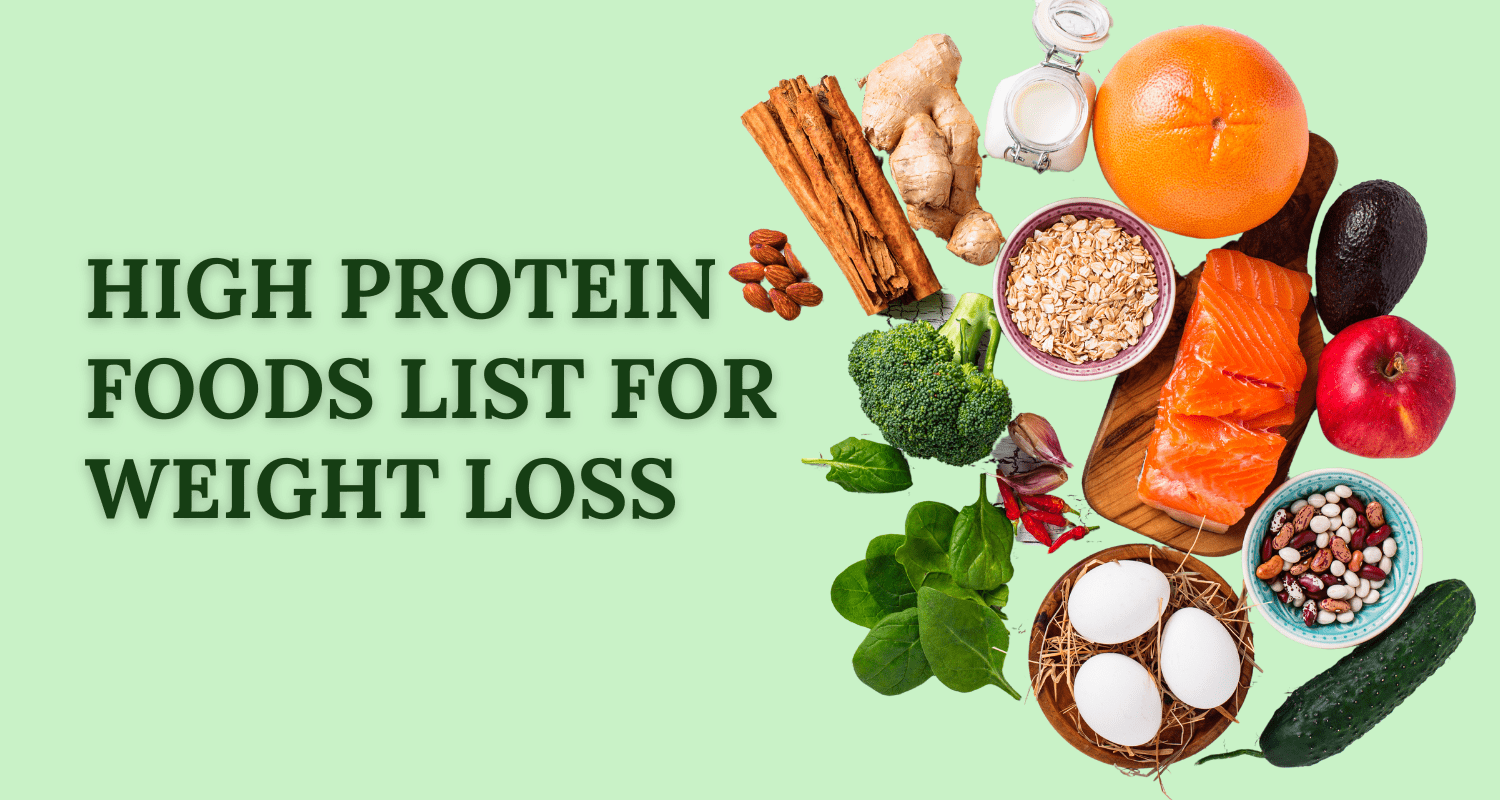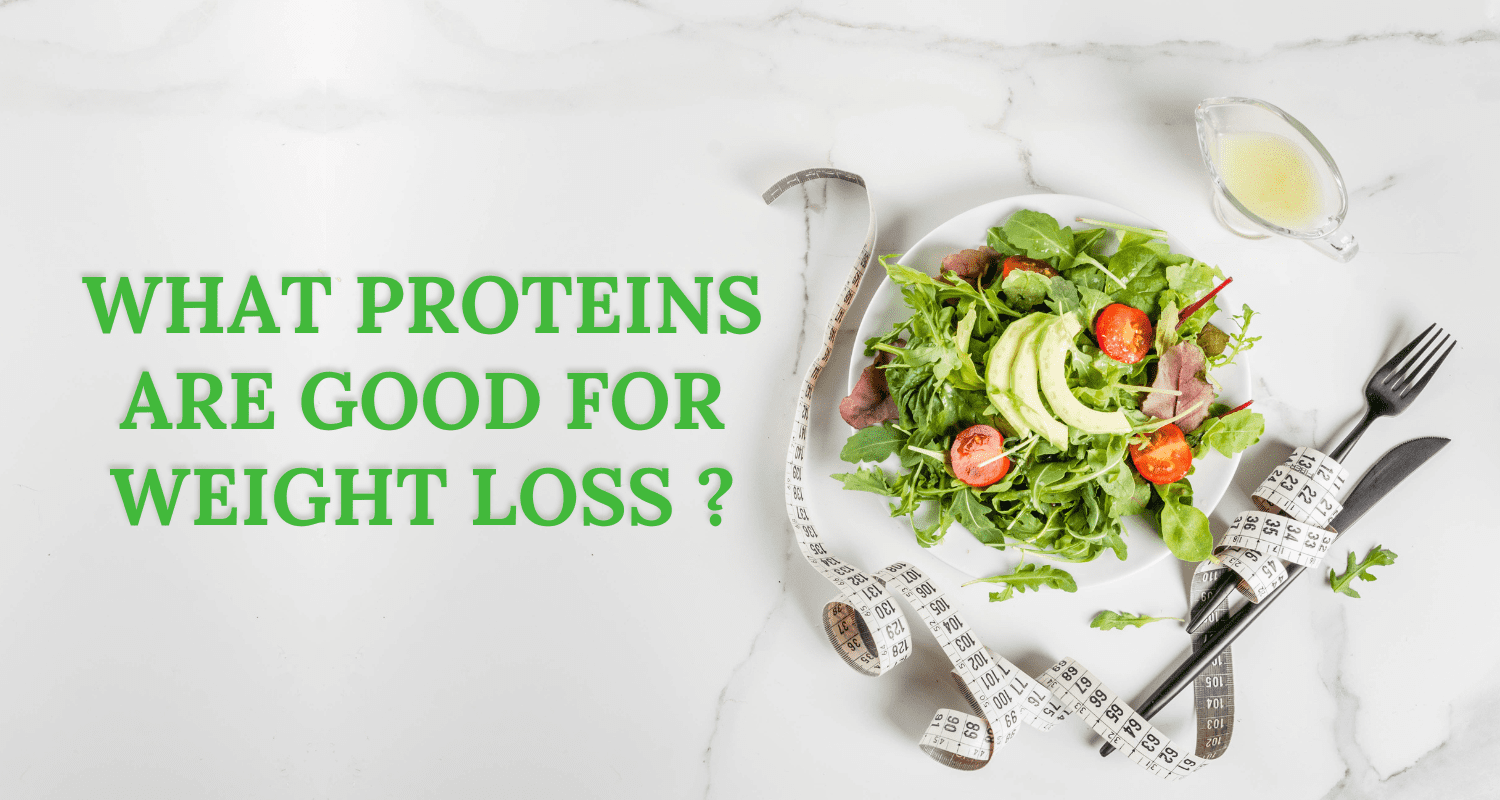Did you know that chicken and turkey are two of the most popular sources of protein in the American diet?
These lean meats are not only delicious but also offer numerous health benefits.
In this article, we will compare the protein content of turkey vs chicken protein to help you make an informed decision about which may be the healthier choice for you.
Let’s dive into turkey vs chicken protein.
Key Takeaways:
- Turkey vs chicken protein, both are excellent sources of protein and can be part of a balanced diet.
- The protein comparison turkey vs chicken, in white meat cuts, such as breast and wing meat, is comparable between turkey and chicken.
- Dark meat cuts, such as leg and thigh meat, also have similar protein content in both turkey and chicken.
- When considering turkey chicken nutrition differences for overall health, including calories, fat, vitamins, and minerals are essential, while turkey and chicken offer similar benefits.
- The choice between turkey vs chicken ultimately depends on personal preference and individual health goals.
Protein Content in White Meat
When it comes to white meat, both chicken and turkey offer a similar protein content.
One ounce (28 grams) of roasted chicken breast contains 9 grams of protein, while the same amount of roasted turkey breast contains 8 grams of protein.
While chicken has a slightly higher protein content than turkey breast, the difference is minimal.
Whether you choose chicken or turkey, in comparison turkey and chicken protein content both are excellent sources of protein.
Protein Content in Dark Meat
Dark meat, found in the legs and thighs of both chicken and turkey, provides a comparable amount of protein.
When comparing one ounce of roasted chicken leg or thigh meat to one ounce of roasted turkey leg or thigh meat, both contain 8 grams of protein.
This makes dark meat a good source of protein, whether you choose chicken or turkey.
Incorporating dark meat into your diet can be beneficial for meeting your protein needs.
Whether you prefer the rich flavor of chicken or the slightly sweeter taste of turkey, both meats offer similar protein content in their dark meat cuts.
By including these cuts in your meals, you can add variety to your diet while still maintaining a good protein intake.
Protein Content in Dark Meat – Comparison:
- Roasted chicken leg or thigh meat: 8 grams of protein per ounce
- Roasted turkey leg or thigh meat: 8 grams of protein per ounce
As you can see, the protein content in dark meat is consistent between chicken and turkey, making them equally viable options for individuals looking to meet their protein requirements.
Whether you’re preparing a savory chicken leg or indulging in a succulent turkey thigh, you can be confident that you’re getting a comparable amount of protein from both meats.
Health Considerations
When it comes to muscle building and overall nutritional value, both turkey and chicken are excellent choices.
Both meats provide a healthy dose of protein and can be incorporated into a balanced diet.
However, a few factors should be considered when determining which option may be healthier for you.
First, let’s compare the protein content between turkey and chicken.
Chicken breast has slightly more protein than turkey breast, making it a favorable choice for those looking to optimize their muscle-building goals.
On the other hand, turkey thigh meat contains slightly more protein than chicken thigh meat, making it a viable alternative for individuals seeking protein-rich options.
However, muscle building isn’t the only consideration when it comes to health.
It’s essential to examine the overall nutrition content. This includes factors such as calories, fat, vitamins, and minerals.
For those watching their calorie intake, both turkey and chicken offer relatively low-calorie options.
White meat from both turkey and chicken have comparable calorie content, with subtle variations.
For example,
Roasted turkey breast contains 44 calories per ounce, while roasted chicken breast has 46 calories per ounce. The difference is minimal and should not significantly impact your overall calorie intake.
When it comes to fat content, turkey tends to be slightly lower than chicken.
Both white and dark meat of turkey have lower fat content compared to their chicken counterparts.
A roasted turkey breast contains 2 grams of fat per ounce, while roasted chicken breast has 1 gram of fat per ounce.
Similarly, the fat content in dark meat is also slightly lower for turkey compared to chicken. However, like the calorie content, the difference in fat content is minimal.
Both turkey vs chicken offer a wide range of vitamins and minerals.
While there may be some variations between white and dark meat, both meats provide essential nutrients.
Chicken breast, for instance, contains more niacin and vitamin B6 compared to chicken leg.
Conversely, chicken leg has more zinc than chicken breast.
Turkey also has its unique nutritional profile, with higher amounts of niacin and vitamin B12 compared to chicken.
To summarize, when considering the healthiness of turkey vs chicken protein vitamin and mineral, it’s important to take into account your individual nutrition needs and health goals.
Both meats provide valuable protein and can contribute to a well-rounded diet.
Turkey boasts a slightly higher protein content in the thigh meat, while chicken excels in terms of protein content in the breast.
Additionally, turkey generally has a lower calorie and fat content than chicken.
However, the differences are minimal and may not significantly impact your overall health.
Ultimately, the choice between turkey and chicken depends on your personal preferences and dietary requirements.
Calories and Fat
When comparing the nutritional content of turkey and chicken, one important aspect to consider is the calorie and fat content.
Turkey tends to be slightly lower in calories and fat compared to chicken, making it a favorable choice for those watching their calorie intake or looking to reduce their fat consumption.
Both white and dark meat of turkey have fewer calories and less fat compared to their chicken counterparts.
For instance, one ounce of roasted turkey breast contains 44 calories and 2 grams of fat, while one ounce of roasted chicken breast contains 46 calories and 1 gram of fat.
It’s worth noting that the difference in calories and fat content between the two meats is minimal.
However, it’s important to consider portion sizes and cooking methods when evaluating the calorie and fat content.
Different cuts of meat and cooking techniques can impact these values, so it’s beneficial to choose lean cuts and opt for cooking methods that minimize added fats.
Calories and Fat Comparison (per ounce)
- Turkey breast: 44 calories, 2 grams of fat
- Chicken breast: 46 calories, 1 gram of fat
While turkey and chicken have similar nutritional profiles, the slight advantage of lower calories and fat content in turkey may be appealing to those prioritizing weight management or heart health.
However, both meats can be part of a healthy diet when consumed in moderation and prepared using healthy cooking methods.
Vitamins and Minerals
Both turkey and chicken offer similar nutritional value in terms of vitamins and minerals.
Although there may be slight variations between white and dark meat, both meats provide essential nutrients for a balanced diet.
Vitamins
When comparing the vitamin content of turkey and chicken, it’s important to note that different cuts may have varying levels of specific vitamins.
For example, chicken breast contains more niacin and vitamin B6 than chicken leg, while chicken leg contains more zinc than chicken breast.
Turkey, on the other hand, has its own unique variations. It tends to contain more niacin and vitamin B12 compared to chicken.
These vitamins play important roles in maintaining cellular health, supporting the nervous system, and promoting the production of red blood cells.
Minerals
Both turkey and chicken are good sources of essential minerals.
These include iron, zinc, phosphorus, and potassium.
These minerals are important for various bodily functions, such as oxygen transport, immune system support, and maintaining healthy bones.
When choosing between turkey and chicken, consider the specific vitamins and minerals that each meat contains.
This can help you meet your nutritional needs and ensure you’re getting a well-rounded diet.
Turkey Broth vs Chicken Broth
When it comes to choosing between turkey broth and chicken broth, both options offer similar nutritional content with slight variations in calories, protein, sodium, and other micronutrients.
Turkey broth, made from turkey meat, tends to be higher in protein compared to chicken broth, which is made from chicken meat.
However, chicken broth may have a slightly higher sodium content.
For those looking to increase their protein intake, turkey broth can be a favorable choice.
Protein is an essential macronutrient that plays a vital role in building and repairing tissues, boosting immunity, and supporting overall health.
On the other hand, if you are watching your sodium intake, chicken broth may be a better option.
Sodium is an essential mineral but consuming too much of it can lead to health issues, particularly for those with high blood pressure or kidney problems.
Ultimately, the choice between turkey broth and chicken broth depends on personal preference and nutritional needs. Some people may enjoy the richer flavor of turkey broth, while others prefer the milder taste of chicken broth.
Whichever option you choose, adding either broth to your recipes can enhance the flavor and provide a nutritious base for soups, stews, and other dishes.
Conclusion
Both turkey and chicken are nutritious protein sources that can be part of a healthy diet.
Whether you choose turkey vs chicken protein, you can rest assured knowing that both meats offer comparable protein content in their white and dark meat cuts.
When considering the overall nutritional value, including calories, fat, vitamins, and minerals, both turkey and chicken provide similar benefits.
The decision between turkey vs chicken protein ultimately boils down to personal preference and individual health goals.
Some people may prefer the slightly higher protein content of chicken breast, while others may opt for the slightly higher protein content of turkey thigh meat.
Additionally, factors such as taste and cooking methods may influence your choice between the two meats.
No matter whether you choose turkey vs chicken protein, both types of meat can be incorporated into a variety of delicious and healthy recipes.
Whether you’re grilling, roasting, or sautéing, turkey and chicken offer versatile options for creating flavorful and protein-packed meals.
So go ahead and enjoy the benefits of both turkey and chicken as part of a balanced diet!
FAQs
Which has better nutrition, turkey vs chicken protein?
Both turkey vs chicken for muscle building are excellent sources of protein, but turkey tends to be slightly leaner and lower in calories.
Which is better, in terms of turkey vs chicken protein quality?
Turkey and chicken are both excellent sources of high-quality protein, but turkey tends to be slightly leaner and lower in fat than chicken.
What are the benefits of choosing turkey over chicken?
Opting for turkey can provide benefits such as lower fat content, making it a favorable choice for those looking to reduce their fat intake while still obtaining ample protein for muscle growth and overall health.
Is turkey or chicken better for protein?
Both turkey and chicken provide high-quality protein, but the choice depends on personal preference and dietary needs.
Which is healthier, ground chicken or turkey?
Both ground chicken and turkey are lean options, but turkey typically has slightly fewer calories and less fat, making it a slightly healthier choice.
Which is higher in protein turkey or chicken?
Turkey generally has slightly higher protein content than chicken, but the difference is minimal.
What is the nutritional value of turkey vs chicken?
Turkey and chicken are both excellent sources of lean protein, but turkey tends to have slightly fewer calories and less fat compared to chicken. However, the nutritional differences between the two are minimal, so both can be healthy choices depending on your preferences and dietary needs.
Is turkey better than chicken for muscle?
Both turkey and chicken are rich in protein, which is essential for muscle growth and repair. The choice between the two depends on individual taste preferences and dietary goals.
Is turkey the best meat for protein?
While turkey is a great source of protein, many other meats such as chicken, beef, and fish also provide high-quality protein. The best meat for protein depends on individual dietary preferences and nutritional needs.
Disclaimer: This content, including advice, provides generic information only. It is not a substitute for a qualified medical opinion. Always consult a specialist or your doctor for more information. Nutrition Cult does not claim responsibility for this information.




